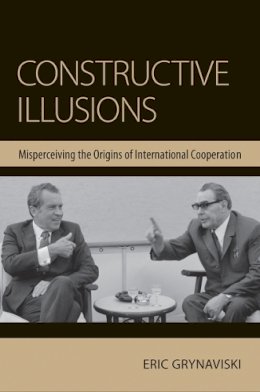
Stock image for illustration purposes only - book cover, edition or condition may vary.
Constructive Illusions: Misperceiving the Origins of International Cooperation
Eric Grynaviski
€ 55.96
FREE Delivery in Ireland
Description for Constructive Illusions: Misperceiving the Origins of International Cooperation
Hardback. Num Pages: 224 pages, 12, 5 black & white line drawings, 5 tables, 5 charts. BIC Classification: JPSD. Category: (G) General (US: Trade). Dimension: 236 x 152 x 19. Weight in Grams: 424.
Read more
Are the best international agreements products of mutual understanding? The conventional wisdom in economics, sociology, and political science is that accurate perceptions of others' interests, beliefs, and ideologies promote cooperation. Obstacles to international cooperation therefore emerge from misperception and misunderstanding. In Constructive Illusions, Eric Grynaviski challenges this conventional wisdom by arguing that when nations wrongly believe they share...
Product Details
Publisher
Cornell University Press
Format
Hardback
Publication date
2014
Condition
New
Weight
424g
Number of Pages
224
Place of Publication
Ithaca, United States
ISBN
9780801452062
SKU
V9780801452062
Shipping Time
Usually ships in 15 to 20 working days
Ref
99-23
About Eric Grynaviski
Eric Grynaviski is Assistant Professor of Political Science and International Affairs at George Washington University.
Reviews for Constructive Illusions: Misperceiving the Origins of International Cooperation
"Constructive Illusions is well written and will especially appeal to theorists of international relations. Students of Soviet-American relations and Cold War history will also find much of interest here. Eric Grynaviski adds important nuances and twists to the standard portrayals of détente."
Jeffrey T. Checkel, Simon Fraser University, author of Ideas and International Political Change "In...
Read moreJeffrey T. Checkel, Simon Fraser University, author of Ideas and International Political Change "In...
